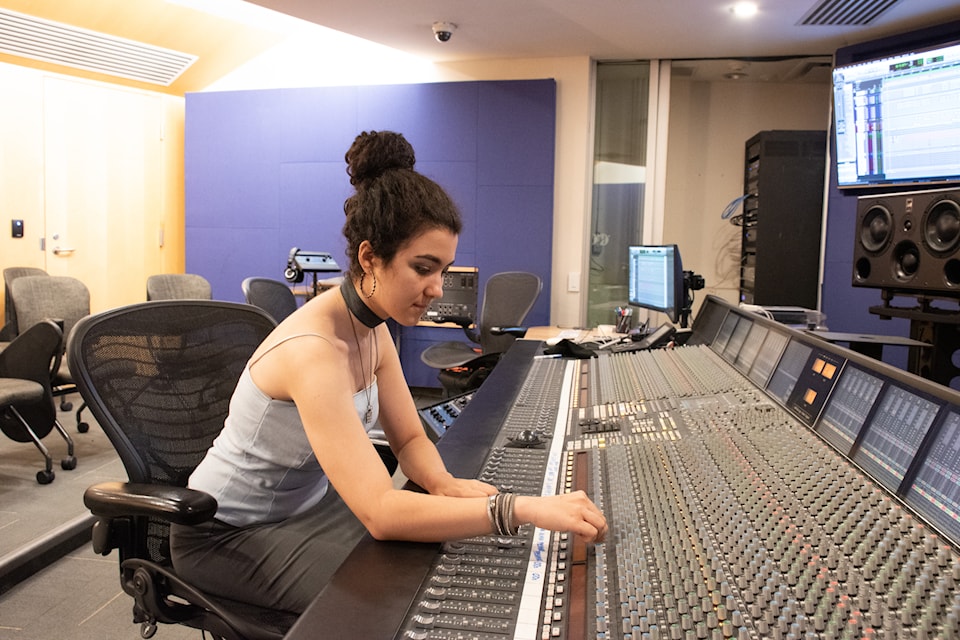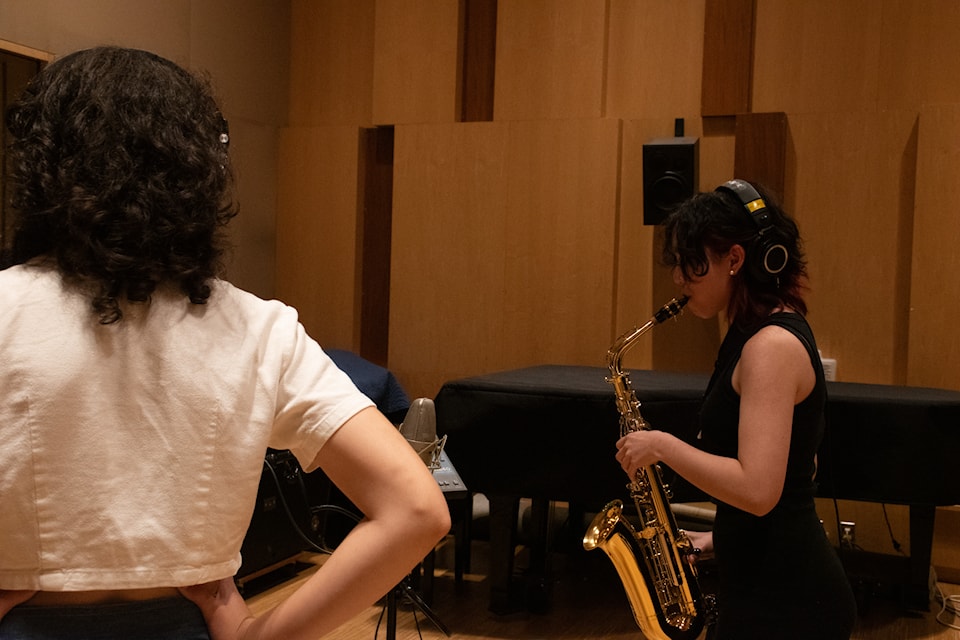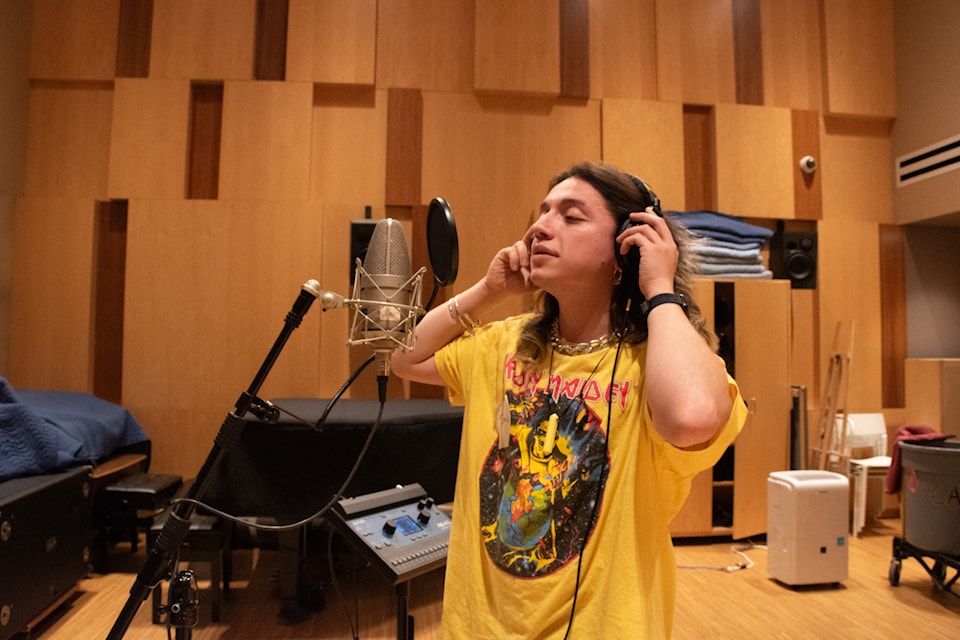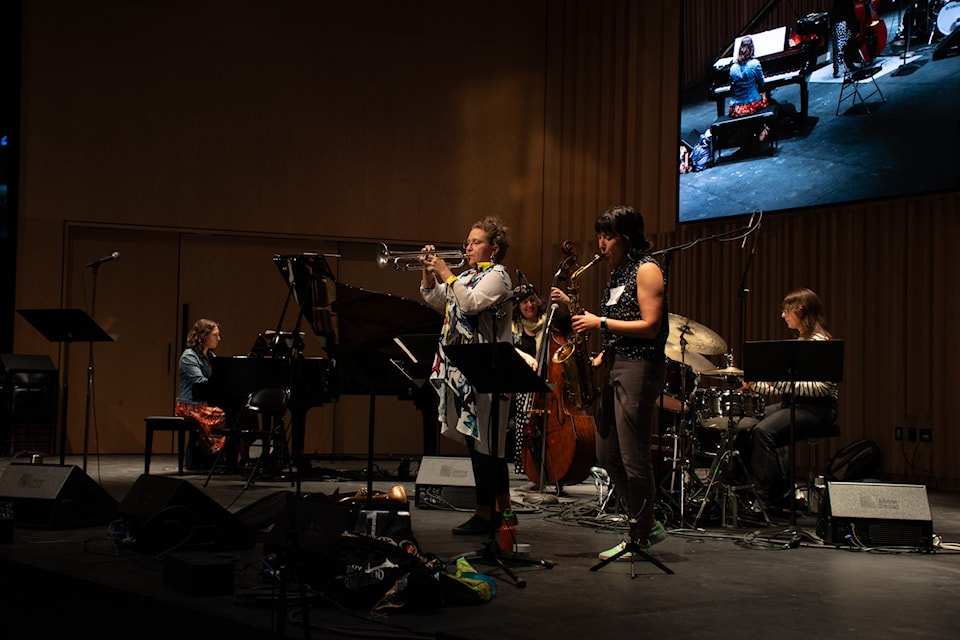Rizoma Adkisson, a vocalist and commercial jazz student at Humber Polytechnic, feels that as a non-binary artist, events like Sister in Jazz held at Lakeshore campus emphasize queer inclusivity.
But more important to Adkisson is that it allows them to get hands-on experience comfortably and in a safe environment.
Adkisson is one of many “sisters” who met at the Humber Polytechnic Lakeshore campus for an opportunity to work with and be mentored by Juno award-winning artists from across Canada.
The event is open to those who identify as women, non-binary, transgender, two-spirit, and generally a “sister.” The event last Sunday was in collaboration with the Juno award-nominated group The Ostara Project and was organized by group leaders Jodi Proznick, the director of Jazz Studies at the Vancouver Symphony School of Music (VSO), and Amanda Tosoff, one of Humber Polytechnic’s music professors.
Proznick said she organized and hosted the event at the VSO for four consecutive years.
She said Jason Merai, the dean of the Humber music department, showed interest in the event and they brought it to Humber.
“It’s a really fun opportunity to find each other,” Proznick said. “We’re still only about five to 10 per cent of the industry, especially with instrumentalists. In terms of gender diversity, it's not fantastic. I find that these gatherings are a way for those of us who identify as sisters to find each other and build a community.”
Tosoff said the day is a multi-learning experience, combining different areas that contribute to music.
“We are doing an orientation and some icebreakers to allow people to network. Then we are breaking out into some workshops on business, grant writing, production,” she said. “Also, composition, improv, different stuff for any level. A bit of playing as well. We’re collaborating with The Ostara Project (and) we’re on tour right now.”
The event had a workshop on mindfulness techniques led by The Ostara Project vocalist Kim Zombik. The event allowed students to network through games and activities such as “Musical Sisters,” a spin on musical chairs.

Sarvi Seivani, a York University music student, said she enjoyed networking with other women and non-binary people in the jazz industry.
“I thought it would be really cool to meet other people who identify as women and non-binary people in the music community because it’s really important for us to support each other. It’s not always a very welcoming industry for women,” she said.
“That’s why it’s all the more important that we try and bring each other up,” said Seivani, a singer, songwriter and pianist based in Toronto. She said the music industry is very male-dominated and that the event was a safe space for her.
“I felt very included. Everyone was super nice and welcoming. It was lovely to learn from other women musicians,” she said. “It provides a safe space for us to get to know other similar musicians, learn from each other, and maybe even collaborate in the future.”

Nyla Henry, a Grade 10 student from Eastwood Collegiate Institute in Kitchener, said the event made her feel accepted into the community.
“Just by being here and being around people who have the same interests as me. I definitely feel like I’m a part of something,” she said.
Students from outside of Humber were invited to a separate workshop in the recording studio, led by Heather Kirby, an audio engineer and production faculty at Humber. She introduced students to the fundamentals of the soundboard, microphone, setup and software.
Henry showed her talents in the recording studio by improvising on her saxophone.
“I really enjoyed it. For my first time recording, I liked the experience of just being able to play and get feedback from other people. It was a fun experience,” she said.

Adkisson said as a new student and someone who identifies as Queer it can be difficult to network in a new environment, but the sisters welcomed them with open arms.
“I was interested in coming to the event today because I am new to the program,” they said. “I want to become involved with more musicians. I want to connect with other queer people and fem people in the industry.
“I think having spaces for feminine and queer people to come and connect, network and learn is super important for us,” they said. “And I’m Latino, so it’s important to have these safe spaces.”
They said working a male-dominated industry can be intimidating for feminine-identifying people.
“I always worry that if I present myself like this, then male musicians won’t take me seriously,” they said.
Adkisson said they hope that one day the industry becomes more accepting, so they can do any project they choose without feeling uncomfortable.
“I would like to be able to participate in whatever. Just one person more. One musician more,” they said.




